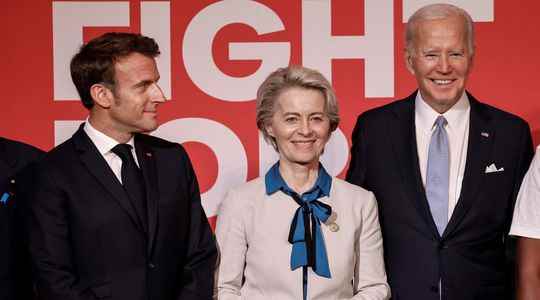A mechanical anti-Americanism has taken hold in France, coupled with the illusion that this powerful ally, whom we ourselves have chosen as the guarantor of a certain idea of Western democracy in the face of dictatorships and totalitarianisms, would live only in the perverse pleasure of dominating us and interfering in French and European affairs. It’s quite the opposite. The campaign speeches for the midterm elections were clear. What the United States threatens us Europeans and therefore French people with is to leave us alone at the mercy of great powers – China and Russia – who do not wish us well and do not share our dearly acquired freedoms, nor our unique model of social protection, nor our way of life, nor our values. The fringe of the Republican Party rallied to Trumpism is the most isolationist, the most hostile to the involvement of the United States in the war in Ukraine and more generally in European affairs.
In the aftermath of the midterms, a second mistake would be to breathe a sigh of relief at the personal failure of Donald Trump, whose proteges failed almost every time, or at the relative defeat of the Republicans, who did not obtain electoral revenge. expected. As if the absence of a tidal wave from the party opposed to Biden guaranteed us the maintenance of the American umbrella and “business as usual”. The Democrats have certainly escaped the sanction vote, the usual curse of the majority in place. However, and it is not a possible tilting of the Senate that will change the deal, Europe no longer interests America. From this point of view, the consensus between Democrats and Republicans is total. Obama had started it, Trump confirmed it, Biden without Ukraine would have prolonged it: the strategic attention of the United States is turned towards China.
American generosity does not last forever
The defeat of Trumpism in the midterms is reassuring for Ukraine. Joe Biden’s United States is by far kyiv’s strongest financial, military and political backer, at $50 billion, and plays a decisive role in the ability of Ukrainian forces to roll back the Russian military – the second in the world in theory. Although the new republican chamber has control over the budget and military aid, a third mistake would be to take the extension for granted. ad aeternam of Washington’s generosity to Ukraine. Nearly 30% of Americans believe that the United States gives him too much support, 6% more than in March, at the start of the war. Inflation – 8% in one year – is pushing both sides to withdraw. Kevin McCarthy, likely House Majority Leader, had promised to review priorities if they win. At the end of October, elected Democrats published a letter demanding in exchange for financial aid the opening of talks with Moscow. Both will urge Europe to contribute more.
The fourth error of the Europeans is older and deeper. It is based on the illusion of eternal Atlantic protection, and on the belief that the brutal and real awakening of NATO in the face of Putin’s war would guarantee its permanence. Just because Biden is determined against Putin – essentially to prove to China what the United States is capable of in the face of a war of invasion against a democratic state (Ukraine, Taiwan) – does not mean that the feeling isolationist declines. Democrats and Republicans share the feeling that rich Europeans are not paying their fair share to NATO, despite repeated injunctions from American presidents.
Last burst of attention
Europe is deaf to this painful reality. Former Chancellor Angela Merkel began to hear it when Donald Trump revealed his intentions to leave NATO. Emmanuel Macron has taken stock of this, making “European sovereignty” his political priority. In Toulon on November 9, while presenting the national strategic review, part of the future military programming law, the president accused in passing Germany, turned towards American armaments, of not playing the game. He is right. If the war on their soil is not enough for the Europeans to understand that they must develop their own defense policy, at the risk of disappearing, that is to despair of us. The American engagement in Ukraine is not a return of America in the security of Europe, but rather a very last burst of attention to what we are.
